How to Get Medical Exemption for Window Tint in Alaska in 2024
Imagine that you’re an Alaskan resident, and you need a medical exemption for window tinting due to a specific health concern. You’re not alone. Many people have navigated this process successfully, and with the right steps, you can too. It all begins with an understanding of the state’s guidelines and obtaining the necessary documentation from a licensed physician. But what happens next? What could be the potential hang-ups? These are questions that can be answered as we unpack this topic further.
The information on myeyerx.net isn’t legal advice; consider it a starting point. Always verify with local and state authorities, as the final decision rests with you. We are not lawyers. For specific legal guidance, we can refer you to legal experts. Remember, knowledge of both state and local laws is essential, and even law enforcement might not be fully updated. We aim for accuracy but advise double-checking for the latest regulations.
Key Takeaways
Key Takeaways
Key Takeaways
- Consult with a licensed physician in Alaska to determine if medical reasons necessitate darker window tint.
- The physician must complete and sign the window tint exemption form, which is then submitted to the Alaska DMV.
- Keep approved medical exemption documentation in your vehicle at all times to avoid penalties.
- Non-compliance with window tint laws, even with a medical exemption, can lead to fines and potential tint removal.
Need Help? Our Doctors Are Here For You!
MyEyeRx was established with the objective of simplifying the complex landscape of state regulations pertaining to legal medical exemptions for window tinting. For individuals seeking to navigate these regulations without resorting to a do-it-yourself approach, we offer a streamlined solution. Our team includes qualified medical professionals who are available to conduct consultations via Zoom. These sessions are designed to assess your eligibility for a medical exemption, ensuring a personalized and efficient process for acquiring the necessary documentation.
Understanding Alaska’s Window Tint Laws
While Alaska allows medical exemptions for window tint, it’s important to understand that the regulations vary depending on whether you’re driving a sedan or an SUV/van, and these exemptions need to be certified by a licensed physician in the state. So, let’s delve into Alaska’s window tinting laws to give you a clear picture.
Alaska’s window tinting laws dictate the window tint darkness allowed on your vehicle, with different rules for sedans and SUVs or vans. These laws aim to ensure safety on the roads while also providing room for medical exemptions. If you’ve a valid medical reason that requires a darker tint than what’s typically allowed, you can apply for a medical exemption. However, remember that this exemption isn’t a free pass to go as dark as you want with your tint. It’s strictly tied to what’s medically necessary and certified by a licensed physician.
To apply for a medical exemption, you’ll need to consult a licensed physician in Alaska. The physician will assess your condition and, if deemed appropriate, certify your need for a medical exemption. Once you’ve this certification, you’ll submit it along with the necessary documentation to the DMV for review.
But don’t think this is a one-time process. Alaska requires an annual renewal of your medical exemption to ensure ongoing compliance with the law. This means you’ll need to visit your physician and the DMV annually to keep your exemption valid. Understanding these nuances of Alaska’s window tinting laws is crucial for ensuring you’re always in compliance and driving safely on the roads.
Eligibility Criteria for Medical Exemption
Now that you’re familiar with Alaska’s window tinting laws, let’s look at how you can qualify for a medical exemption. The eligibility criteria are quite straightforward. First and foremost, you must have a valid medical reason that necessitates darker window tint for your vehicle. This isn’t a loophole for those looking to sidestep the law; it’s a provision for people with certain medical conditions that make them sensitive to sunlight.
This condition must be certified by a licensed physician. It’s not enough to simply state that you have a medical condition; you need a professional’s endorsement stating that your condition indeed warrants darker window tint. A physician’s certification is a key requirement, so it’s important to discuss your condition with a doctor who understands your needs.
Keep in mind, this exemption isn’t permanent. It needs to be renewed annually with certification from your physician. This is to ensure that the need for a darker window tint is still applicable and justified.
Once you have your physician’s certification, you’ll need to submit it to the Alaska DMV. Along with the certification, fill out the necessary forms provided by the DMV. These forms and your medical documentation are your ticket to an exemption.
If approved, the Alaska DMV will provide you with the approved documentation for the medical exemption. This documentation should be kept in the vehicle at all times. It serves as proof of your exemption should you ever need to present it. So, with the right medical reason, physician’s certification, and appropriate paperwork, you could qualify for a medical exemption for window tint in Alaska.
Process of Filing for Medical Exemption
So, you’re ready to file for a medical exemption for window tint in Alaska? Let’s walk through this journey together. It’s not as intimidating as it might seem. Your primary goal is to reduce your excessive sunlight exposure due to your medical condition, and the Alaskan law allows you to do just that.
First things first, consult with a licensed physician in Alaska. Discuss your condition and how the sunlight exposure exacerbates it. The physician will need to fill out and sign an affidavit confirming your medical necessity for window tint. This signed document is your key to gaining an exemption.
Here are the steps to follow:
- Arrange a consultation with a licensed physician in Alaska.
- Have the physician complete and sign the window tint exemption form provided by the DMV.
- Compile any required medical documentation that supports your request.
- Submit the signed affidavit and documentation to the Alaska DMV.
- Await the DMV’s review process for your exemption request.
Once approved, the DMV will provide you with the official medical exemption certificate. This document is crucial as it’s your official permit allowing window tint beyond the usual limits. Keep it in your vehicle. If stopped by law enforcement, you can present this certificate to avoid any potential issues.
Navigating Non-compliance and Penalties
Even with a medical exemption, it’s crucial to understand the consequences of non-compliance with window tint regulations in Alaska. You may believe you’re in the clear with your exemption, but remember, law enforcement takes window tint laws seriously. Not adhering to these regulations can result in citations, fines, and even legal consequences.
If you’re found to be non-compliant, you could face penalties that include fines of up to $300 plus a $10 surcharge. That’s not a small sum! Plus, you’ll be required to remove the illegal tint, which can be a hassle and an additional expense. It’s also worth noting that if the violation isn’t rectified within a specified time, you may face additional consequences.
While having a medical exemption for window tint in Alaska can provide relief from light-sensitive conditions, it doesn’t give you carte blanche to ignore the regulations. Compliance is still a must. Even with your exemption, your tint must meet specific guidelines established by the law. The last thing you want is to be pulled over and find yourself dealing with unnecessary complications.
To avoid penalties, make sure to double-check with your local Department of Motor Vehicles (DMV) or law enforcement authorities. They can provide the specifics about window tint laws and the repercussions of non-compliance in Alaska. In the end, it’s all about being responsible and respectful of the rules, even as you enjoy the benefits of your medical exemptions.

Don't want the hassle? Let us take care of your exemption for you!
MyEyeRx.net is here to help you streamlines the process of obtaining a medical exemption for window tint online. Explore our services to easily transform your window tint from non-compliant to legally approved!
Because of the differences in each of the 50 states, we’ve crafted distinct guides for securing window tint medical exemptions for each of the individual states.

Toriano (Tory) Dewberry
Become one of the many satisfied clients Toriano has assisted in obtaining a medical exemption without stepping out of their homes. Click the button below to begin and discover if you're eligible for a medical exemption.

Toriano (Tory) Dewberry
Become one of the many satisfied clients Toriano has assisted in obtaining a medical exemption without stepping out of their homes. Click the button below to begin and discover if you're eligible for a medical exemption.
Frequently Asked Questions (FAQ'S)
How Much Is a Tint Ticket in Alaska?
In Alaska, tint tickets can hit your wallet hard. If you’re caught violating tint laws, you’re looking at a fine of up to $300. Plus, there’s a potential $10 surcharge if you don’t correct the violation promptly. Understanding traffic fines and Alaska’s tint regulations can help you avoid such penalties. Always check legal tint darkness and car modification laws to dodge traffic violation consequences. Tint removal options are worth considering to meet automobile window standards.
What Medical Conditions Qualify for Window Tint in Pa?
In PA, you can qualify for a window tint medical exemption if you’ve conditions like photophobia, skin conditions aggravated by sunlight, lupus, melanoma, cataracts, macular degeneration, retinitis pigmentosa, albinism, xeroderma pigmentosum, solar urticaria, or if you’re undergoing medical treatments like chemotherapy. It’s important to get a doctor’s note to verify your condition. Remember, the PA tint laws have limitations, so understand the tint verification process and exemption renewal process.
How Do I Get Medical Exemption for Window Tint in Ct?
To get a medical exemption for window tint in Connecticut, you’ll need medical documentation of your qualifying conditions. Research CT’s tinting regulations and state laws to understand legal ramifications. Start the exemption process by obtaining the right forms. Fill them out carefully – application tips can help avoid exemption abuse. Remember, privacy concerns and health benefits are key factors. Once completed, submit your forms for approval. Don’t forget to follow up!
What Medical Conditions Qualify for Window Tint in Illinois?
In Illinois, conditions like photophobia, photosensitivity, lupus, and porphyria qualify you for a window tint exemption. You’ll need a doctor’s letter detailing your light-sensitive or skin condition. Illinois regulations allow varying tint percentages based on medical need. There are legal implications, so ensure your documentation is in order. Tinting benefits include reduced light sensitivity and skin protection. Prepare for a vehicle inspection to validate your exemption. Always keep your required documentation handy.

MyeyeRx.net
Ensuring your tint is not just about style, but legality and safety.
Let us guide you through the maze of state regulations to legal clarity.

Conclusion
So, are you ready to take the steps towards getting a medical exemption for window tint in Alaska? Remember, it’s all about understanding the regulations, determining your eligibility, filing the appropriate paperwork, and being aware of potential penalties. With a clear path laid out, you’re just a few steps away from driving with comfort and protection. After all, isn’t that what everyone wants when they’re on the road?
Looking to find a Reputable Window Tint Company In Alaska?
Checkout Tintingnearme.com to Find A Local Tint Shop
After learning about window tint laws, the next step is to find a trusted local window tinting shop. Tinting Near Me offers a selection of reputable shops knowledgeable in both quality tinting and legal standards, including medical exemptions.
Choose a shop from their list for expert service that meets legal requirements and enhances your vehicle’s compliance and protection.


